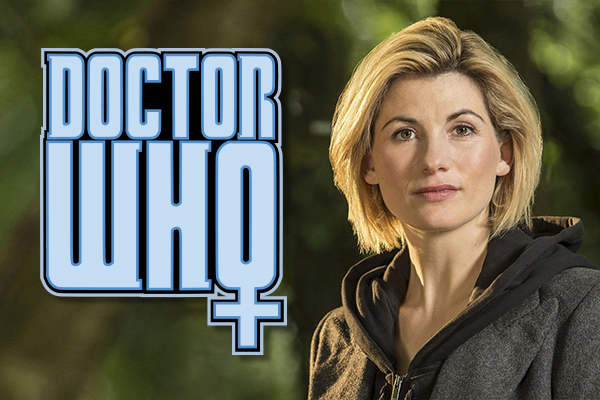Professor: Dr. Who outrage illustrates larger prejudice problem

“I don’t know about this.”
“I’m not watching anymore.”
“Ruined.”
These are a sampling of tweets in reaction to BBC’s announcement that Jodie Whittaker has been cast as the new lead character—the Doctor—in Dr. Who. While plenty of fans celebrated the news of Whittaker’s role, others took to social media platforms and online forums to express disappointment, outrage, and outright sexism.
Dr. Who, the long-running science fiction television show, originated in the United Kingdom and has spawned a cult following in the United States. All of the previous 12 Doctors were played by men. But as BBC explained in an official statement responding to the complaints, “The Doctor is an alien from the planet Gallifrey and it has been established in the show that Time Lords can switch gender.”
Given that the storyline makes a female Doctor just as plausible as a male one, why the onslaught of negative comments? Northeastern assistant professor Moya Bailey studies how race, gender, and sexuality are represented in media and medicine. Here, Bailey weighs in on the backlash, explaining that it fits into a larger problem: the internet is often a breeding ground and soapbox for prejudiced voices.
Are you surprised by the online response to the announcement of a female Dr. Who?
I cannot say that I am surprised given the ways that fandoms often reveal the limits of our radical imaginations. Despite the invention of languages like Klingon, science fictive futures are often just as racist, heteronormative, ableist, and sexist as our world today.
Can you give an example where you’ve seen this—or something like this—before?
One of my favorite sci-fi writers is Afrofuturist and McArthur “genius” award recipient Octavia Butler. She said that it was the decidedly terrible Devil Girl From Mars film with its stereotypical tropes about women that made her think she could be a sci-fi writer. She knew she could do better than that.
Why do you think there was so much negative backlash from the Dr. Who announcement? How does the research literature explain this behavior?
What happened here was equal parts internet courage and the biases people already have, and having a platform like Reddit ready to receive them. If you recall, people were mad when Amandla Stenberg was cast as Rue in The Hunger Games, despite the fact that the original character was black. Readers actively ignored Rue’s blackness and expressed disbelief that a black girl could illicit empathy. A recent study also said that people don’t believe black girls are as innocent as their white counterparts. Whether its misogynoir or misogyny, fans bring their prejudices to the new worlds science fiction attempts to create.
What are some of the impacts and outcomes of sexist comments online? Does this discourse shape the kind of writing, art, and media people choose to create?
Women and people of color are creating art for themselves and the internet is one of the ways that it’s become easier to do so. My research looks at the ways black women and girls have been able to use social media platforms to create the kinds of media and representations they wish to see, despite the reluctance of mainstream media to catch up. I am also the co-director of The Center for Solutions to Online Violence, which works with those who are the most likely targets of negative comments online to develop new strategies for making the internet a safer space for all of us.





